光村図書 中学3年生 Here We Go! Let’s Read1の本文の日本語訳と重要箇所の解説です。
1995年8月6日,広島に原子爆弾が投下され,多くの中学生が犠牲になりました。当時広島県立広島第二中学校(二中)の1年生だった河本聿美くんも原子爆弾の犠牲になった1人です。
その河本くんが1944年12月1日から1945年8月4日まで書いていた日記を,一部抜粋で紹介します。戦時中の様子が克明に描かれています。では一緒に内容を見ていきましょう。
>中3Here We Go! Let’s Read2 本文和訳
>中3Here We Go! Let’s Read3 本文和訳①
>中3Here We Go! Let’s Read3 本文和訳➁
- Let’s Read1 本文と日本語訳
- 重要語句
- Let’s Read1 重要事項の解説
- Unfortunately, it was delayed.
- I was worried, “What will happen to me?”
- When I arrived at Nichu, the ceremony was already going on.
- After I explained my delay, they let me in.
- For the first time, a bomb was dropped on the city of Hiroshima.
- It was just before I crossed Enko Bridge.
- “Grr, thump, thump!” What a frightening noise it made!
- I went there right away and saw a fire burning intensely.
- In the morning, we dug holes to bury glass.
- Uehara gave it to me.
- When I came home, we went out to buy rice bran, eggs, and rice, and then I went swimming.
- We played toriko (the game of taking over the opponent’s place) and I bought a packet of sashi (fish bait).
- Let’s Read1 まとめ
Let’s Read1 本文と日本語訳
From the Diary of Kawamoto Itsuyoshi
『河本聿美くんの日記から』
April 4 (Wednesday), Sunny 4月4日(水),晴れ
Today was a happy day for me.
「今日は僕にとって嬉しい日でした。」
From today, I am going to commute to Nichu.
「今日から,僕は二中に通学します。」
I went to Hiroshima on the 6:50 a.m. steam train.
「午前6時50分の蒸気機関車で広島に行きました。」
Unfortunately, it was delayed.
「不運なことに,電車が遅れていました。」
I was worried, “What will happen to me?”
「僕は心配になって,『僕に何か起きるのでは?』と思いました。」
When I arrived at Nichu, the ceremony was already going on.
「二中に着いたとき,式典はもう進んでいました。」
After I explained my delay, they let me in.
「遅刻について説明した後,僕は入れてもらえました。」
I sighed with relief.
「安心してため息が出ました。」
April 15 (Sunday), Sunny 4月15日(日),晴れ
Today is the third Sunday.
「今日は第3日曜日です。」
I went to school and at last we started to study.
「学校に行って,ついに勉強が始まりました。」
We had English in the first hour, self-study in the second, history in the third, and math 2 (geometry) in the fourth hour.
「1時間目は英語で,2時間目は自習,3時間目は歴史,そして4時間目は数学Ⅱ(幾何)でした。」
I studied very hard.
「一生懸命勉強しました。」
April 30 (Monday), Sunny 4月30日(月),晴れ
For the first time, a bomb was dropped on the city of Hiroshima.
「初めて,広島の都市部に爆弾が落とされました。」
It was just before I crossed Enko Bridge.
「それは,僕が猿猴橋を渡るちょうど直前でした。」
“Grr, thump, thump!” What a frightening noise it made!
「『ギー,ドシンドシン!』それはとても恐ろしい音を出していました!」
Then, a thick cloud of smoke rose up.
「それから,濃い煙の雲が立ち上がりました。」
I went there right away and saw a fire burning intensely.
「僕はすぐにそこに行くと,激しく火が燃え上がっているのを見ました。」
July 6 (Friday) 7月6日(金)
Today was a work day.
「今日は働く日でした。」
In the morning, we dug holes to bury glass.
「午前中は,ガラスを埋めるために穴を掘りました。」
At lunch, I ate a loquat.
「お昼にビワを食べました。」
Uehara gave it to me.
「上原がそれを僕にくれました。」
I also ate some peas and a sweet potato.
「僕はエンドウ豆を何個かとサツマイモを食べました。」
During our rest time at lunch, we played hide-and-seek.
「お昼の休憩時間で,僕たちはかくれんぼをして遊びました。」
It was a lot of fun.
「とても楽しかったです。」
In the afternoon, we carried tree branches.
「午後は,木の枝を運びました。」
August 1 (Wednesday), 32 degrees 8月1日(水),32度
Today we received our grades.
「今日は,成績表を受け取りました。」
My average was “excellent” and I was very happy.
「成績の平均は『優秀』だったので,とても嬉しかったです。」
I received 10 yen and bought a toy-plane part (a winder) for five yen.
「僕は10円を受け取って,5円でおもちゃの飛行機の部品(ワインダー)を買いました。」
Tomorrow we will work at road clearing in the east of Shin-Ohashi.
「明日は,新大橋の東側で道路掃除をします。」
August 2 (Thursday), Sunny, 32 degrees 8月2日(木),晴れ,32度
From today, we will do ten days of road clearing work.
「今日から,僕たちは10日間の道路掃除の仕事をします。」
Today we tidied up the east side of Shin-Ohashi.
「今日は,新大橋の東側をきれいにしました。」
August 3 (Friday), Sunny, 30 degrees 8月3日(金),晴れ,30度
Today we worked again.
「今日も働きました。」
On my way back home, it rained and I got wet through.
「家に帰る途中で雨が降って,びしょぬれになりました。」
August 4 (Saturday), Sunny, 32 degrees 8月4日(土),晴れ,32度
Today we worked again.
今日も働きました。働きました。」
When I came home, we went out to buy rice bran, eggs, and rice, and then I went swimming.
「家に帰った後すぐに米ぬか,卵,米を買いに出かけて,それから泳ぎに行きました。」
We played toriko (the game of taking over the opponent’s place) and I bought a packet of sashi (fish bait).
「僕たちはとりこ(相手の陣地を占領するゲーム)をして遊んで,さし(魚のえさ)を1袋買いました。」
Tomorrow will be Sunday, but we will have Tuesday’s lessons.
「明日は日曜日だけど,火曜日の分の授業があります。」
Kawamoto’s diary ends here.
「河本くんの日記はここで終わります。」
On the fifth of August, he went to school and studied.
「8月5日,彼は学校に行って勉強していました。」
On Monday the sixth of August, he went to work again at the work site east of Shin-Ohashi.
「8月6日の月曜日,彼は新大橋の東側にある仕事場で再び働きました。」

重要語句
commute 「通学・通勤する」
sigh「ため息をつく」
at last「ついに,とうとう」
thick「濃い,厚い」
loquat「ビワ」
sweet potato「サツマイモ」
branch「枝」
average「平均」
receive「を受け取る」
end「終わる」
steam train「蒸気機関車」
relief「安心,安堵」
geometry「幾何」
rose up rise upの過去形で「上がる」
pea「エンドウ豆」
hide-and-seek「かくれんぼ」
degree「温度,程度」
excellent「素晴らしい,優秀な」
tidied up tidy upの過去形で「片づける」
Let’s Read1 重要事項の解説
Unfortunately, it was delayed.
“unfortunately“は「不運にも,残念ながら」といった意味合いの重要な副詞です。
“delay”は「を遅らせる」という動詞で,今回は「受動態」になっていますね。
I was worried, “What will happen to me?”
“worry”は「を心配させる」という動詞で,“be worried”と「受動態」にすることで「心配する」という意味になります。
“What happens to~?”は「~はどうなるか,~に何が起こるか」といった表現になります。
When I arrived at Nichu, the ceremony was already going on.
“ceremony”は「式典」という名詞です。“already”は「すでに,もう」という副詞ですね。
“go on”は「進み続ける,~を続ける」といった表現になります。
After I explained my delay, they let me in.
“after”は接続詞として使われていますね。“explain”は「を説明する」という動詞です。“delay”は名詞で「遅延」という意味もあります。
後半の“let me in”は「中に入れてくれる」といった意味合いです。“let 人・もの 動詞の原形”で「人・ものに~させてあげる,人・ものが~するのを許す」といったニュアンスになりますね。必ず理解しておきましょう。
For the first time, a bomb was dropped on the city of Hiroshima.
“for the first time”は「初めて」という重要表現です。“drop”は「を落とす」という動詞で,今回は「受動態」になっていますね。
It was just before I crossed Enko Bridge.
“just before”は“before”をより強調した表現で,「直前,ちょうど前」といった意味になります。
“cross”は「渡る」という動詞です。
“Grr, thump, thump!” What a frightening noise it made!
“Grr, thump, thump!”は擬音です。
後半の文は「感嘆文」になっていますね。“frightening”は「恐ろしい」という形容詞です。
I went there right away and saw a fire burning intensely.
“right away”は「すぐに」という重要表現です。“burn”は「燃える」という動詞で,「現在分詞」の形になっていますね。
“intensely”は「激しく」という副詞です。
In the morning, we dug holes to bury glass.
“in the morning”は「午前中」ですね。“dug”は“dig(を掘る)”の過去形です。ポケモンのディグダ,ダグトリオもこの動詞から名前がついていますよ。
“bury”は「を埋める」という動詞で,発音は「ベリー」なので要注意です!“glass”は「ガラス」です。
Uehara gave it to me.
“give もの to 人”は“give 人 もの”と書き換え可能です。どちらも書けるようにしっかり理解しておきましょう!
When I came home, we went out to buy rice bran, eggs, and rice, and then I went swimming.
「接続詞のwhen」はふつうは「~のとき」と訳しますが,「~した後すぐに」という訳になることもあります。
“go out”は「外出する」です。また,“go -ing”で「~しに行く」となります。“go shopping(買い物に行く)”などはよく使いますね。
“rice bran”は「米ぬか」です。
We played toriko (the game of taking over the opponent’s place) and I bought a packet of sashi (fish bait).
“take over”は「奪う,引く継ぐ」といった意味があります。リレーでバトンパスをするところをテイクオーバーゾーンと言いますね。ただ,今回は「奪う」の方で訳します。
また,“taking”となっているので,ここは「動名詞」になりますよ。
“opponent”は「敵」という名詞です。“a packet of~”で「1袋の~」となります。“bait”は「えさ」です。
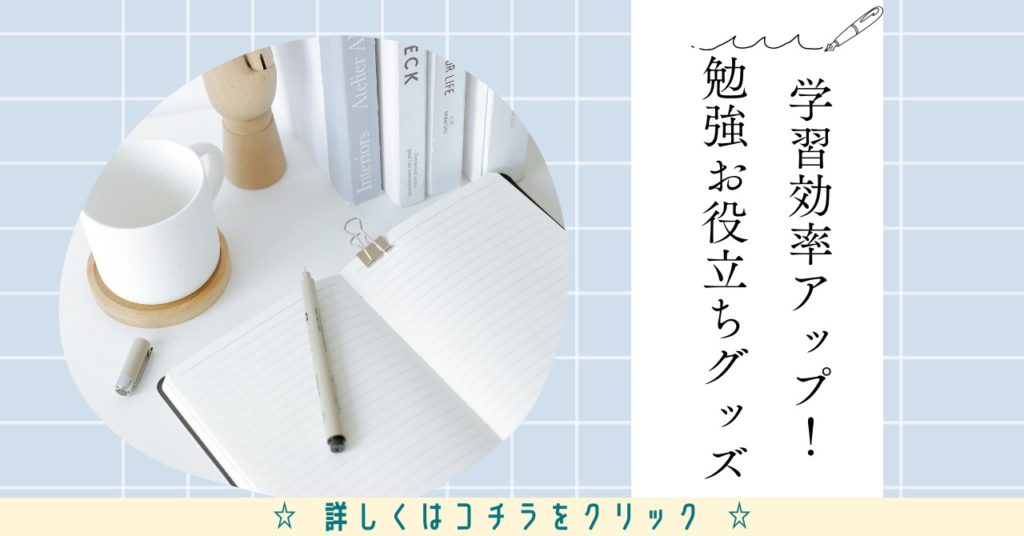
Let’s Read1 まとめ
以上がLet’s Read1の日本語訳となります。
割と長くなってしまいましたが,重要な表現も多く文法の復習にもなります。しっかり復習していきましょう!
何か分からない点や他に解説してほしい点があれば,お気軽にコメントしてください!
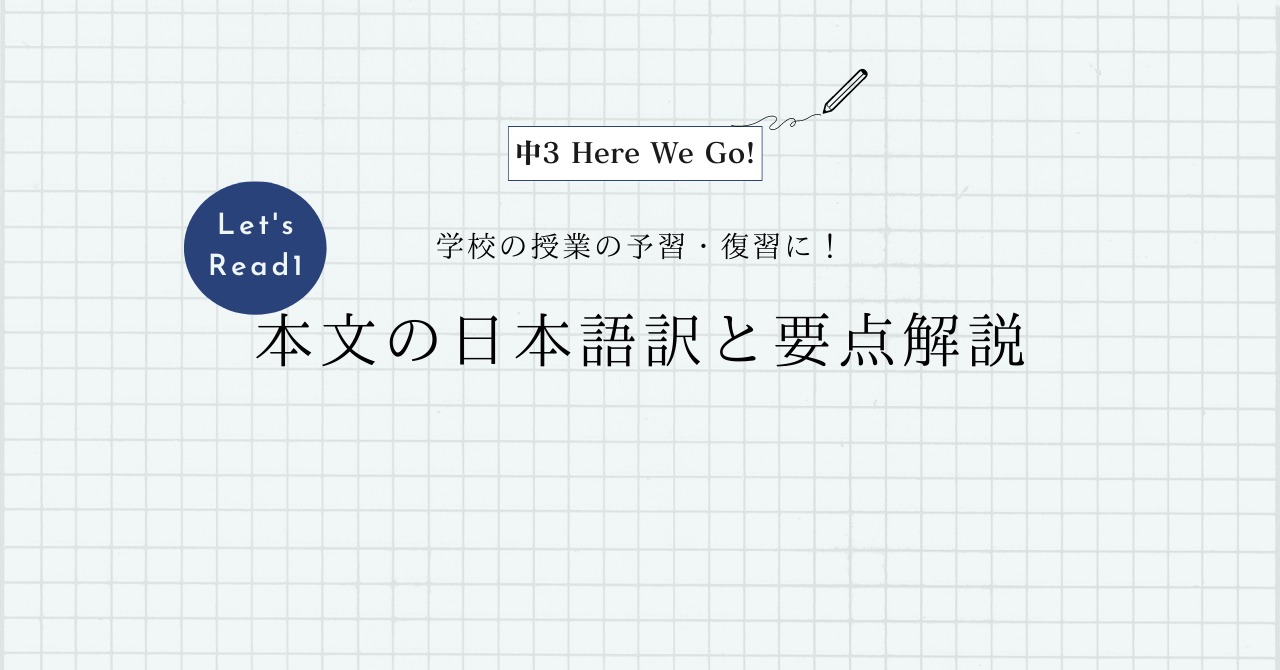
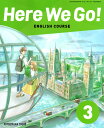

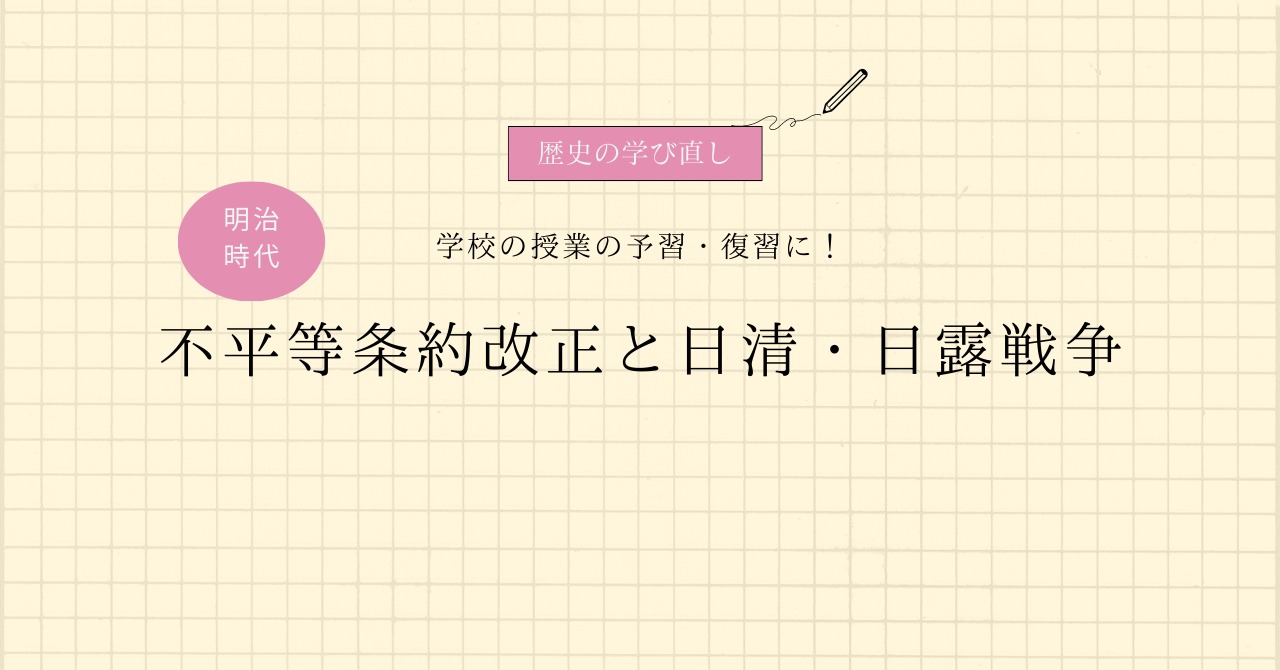
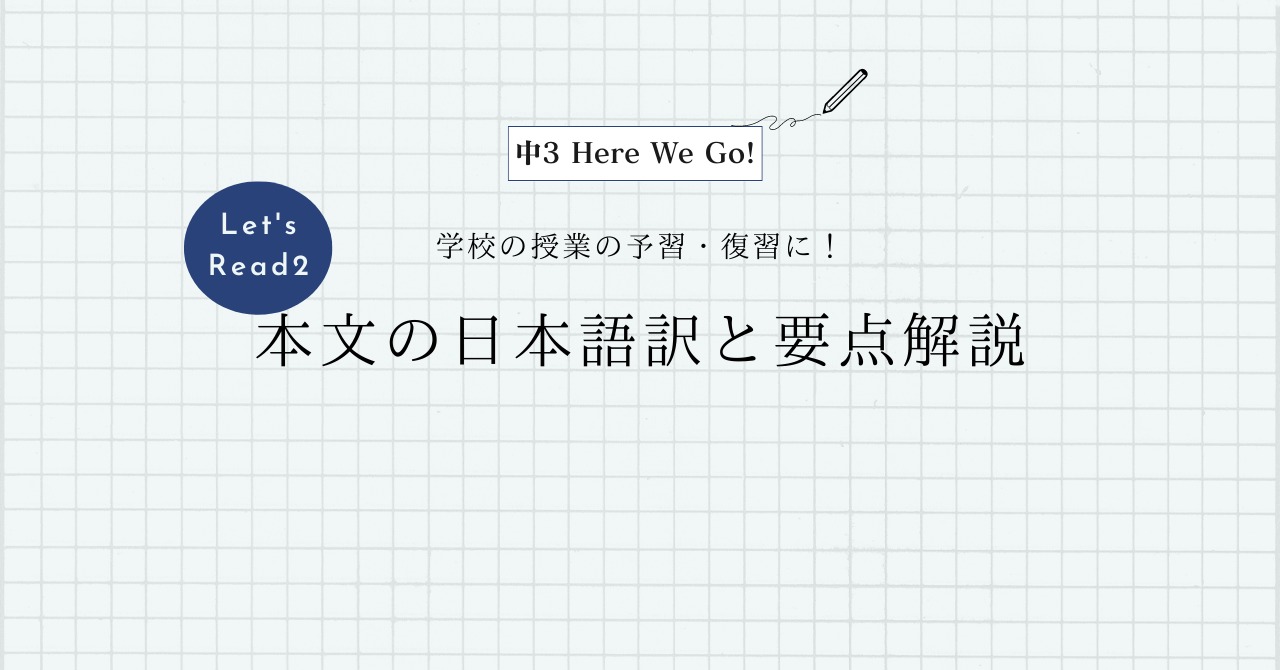
コメント